Review: FIDDLER ON THE ROOF, Regent's Park Open Air Theatre
A charming, heart-rending, and utterly gorgeous revival.
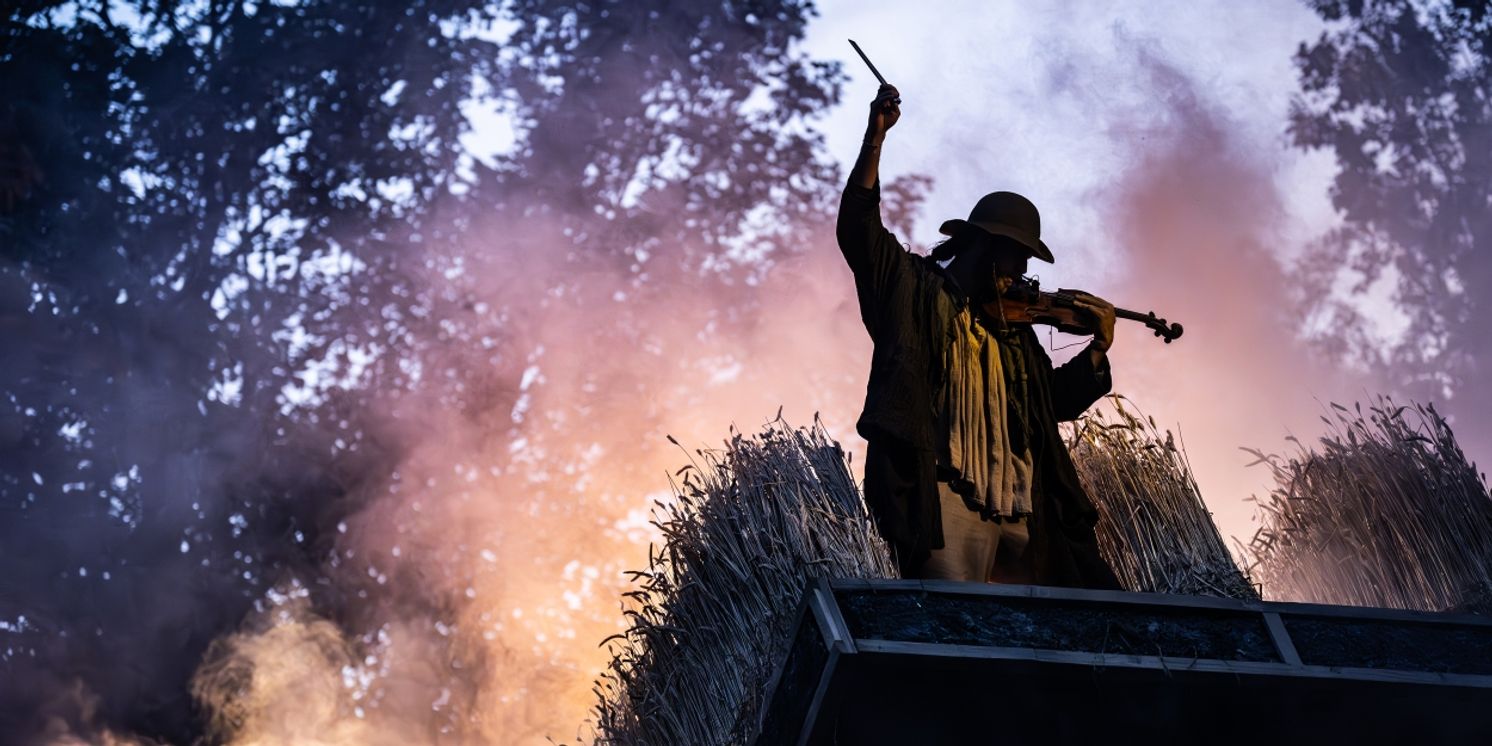
![]() Fiddler on the Roof is still one of the most revived in schools and amateur companies, but it premiered on Broadway in 1964 with mixed reviews (it was called “shtetl kitsch” and initially largely dismissed by the press). These days, the stakes are higher. Recent productions have added context to relate the plot to the refugee crisis, but director Jordan Fein says he firmly wants to leave politics at the door.
Fiddler on the Roof is still one of the most revived in schools and amateur companies, but it premiered on Broadway in 1964 with mixed reviews (it was called “shtetl kitsch” and initially largely dismissed by the press). These days, the stakes are higher. Recent productions have added context to relate the plot to the refugee crisis, but director Jordan Fein says he firmly wants to leave politics at the door.
Is it really possible to do so at a time when extra security needs to be hired and safety measures are in place to prevent any disturbance? Fiddler revolves around Jewishness and Jewish traditions, and, whether people like it or not, these are heavily politicised notions at the moment.
With music by Jerry Bock, lyrics by Sheldon Harnick, and a book by Joseph Stein, it’s based on a series of semi-autobiographical short stories by Sholem Aleichem that follow Tevye, an impoverished milkman who lives in the village of Anatevka with his wife and their five daughters. Three of them refuse the help from the matchmaker and decide to marry for love instead. This break in tradition is only the first of many changes that will come upon Tevye’s family, who will ultimately be forced to move away alongside the Jews of Russia. Fein’s project is as subtly new a classic can get without its being entirely decontextualised.
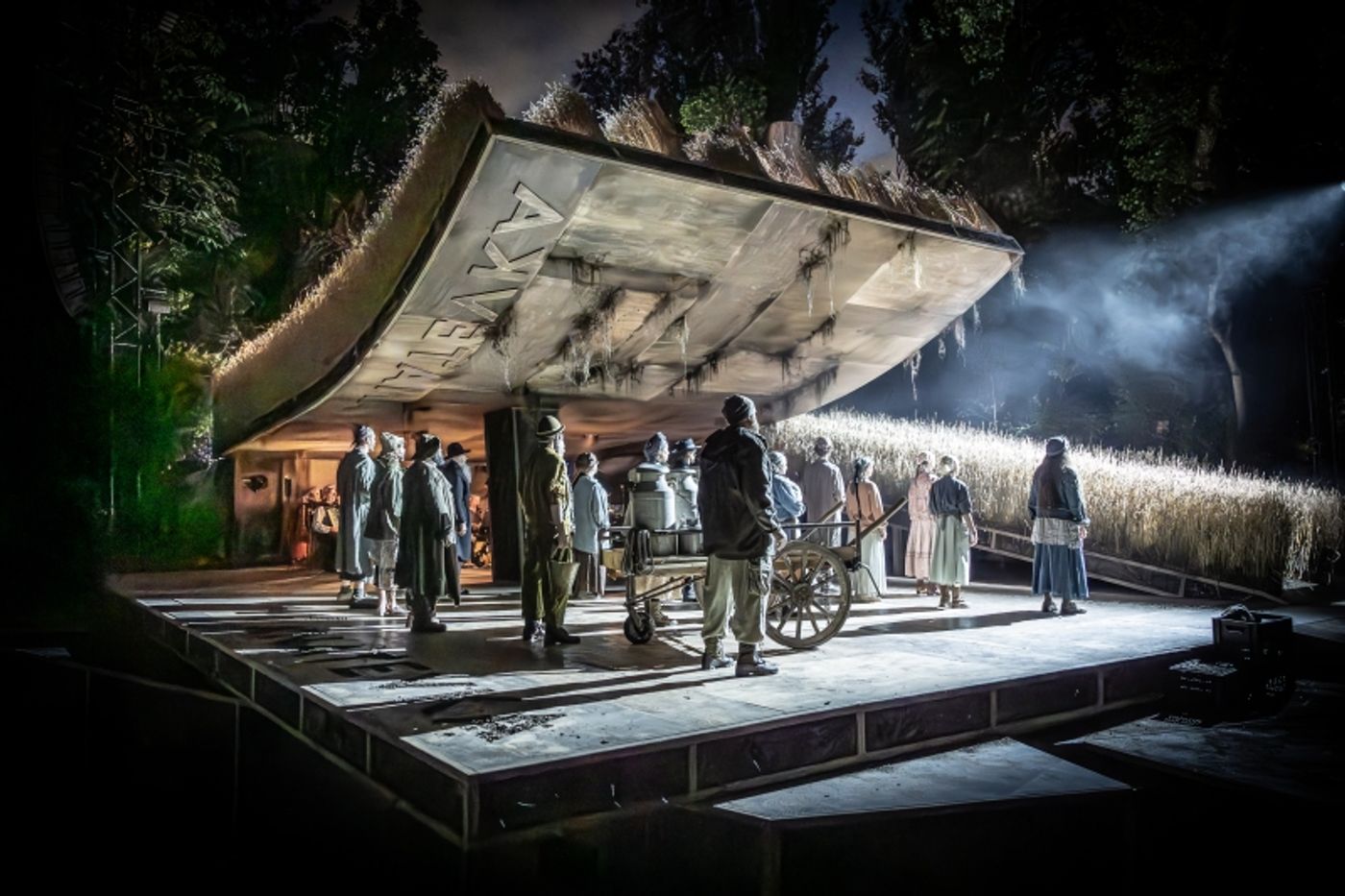
The direction toys with visuals and ideas, suspending Fiddler in a platonic ideal of historical Russia. Even before the show begins, we’re met by a set that speaks in allegory. Tom Scutt peels off the top layer of the stage and suspends it, making a roof in the only major roofless theatre in London. Roots dangle above the actors and rows of golden wheat surround the action, forcefully uprooted. That’s where the Fiddler (Raphael Papo) appears and starts haunting dear old Tevye. Fein and Scutt’s vivid tableaux vivants become even more atmospheric when Aideen Malone’s lighting design properly kicks in after nightfall, creating stirring chiaroscuri that increase the tension.
Adam Dannheisser forgoes the showmanship that’s usually associated with the benevolent patriarch for a line-up of dad jokes and winks thrown at the audience. He towers over everybody, acutely sardonic yet suitably sombre. Dannheisser introduces a devoted, profound man who loves his family and secretly always seeks his wife’s approval. It’s Lara Pulver’s rebuttals as Golde that make his outdated worldviews and backhanded misogyny sting a little less than they would otherwise. She is a force of nature, revealing a powerful voice and an arresting presence.
Their rebellious daughters are a remarkable trio. Liv Andrusier (Tzeitel), Georgia Bruce (Hodel), Hannah Bristow (Chava) split off from a life where their only role is to wait for a husband they didn’t choose.
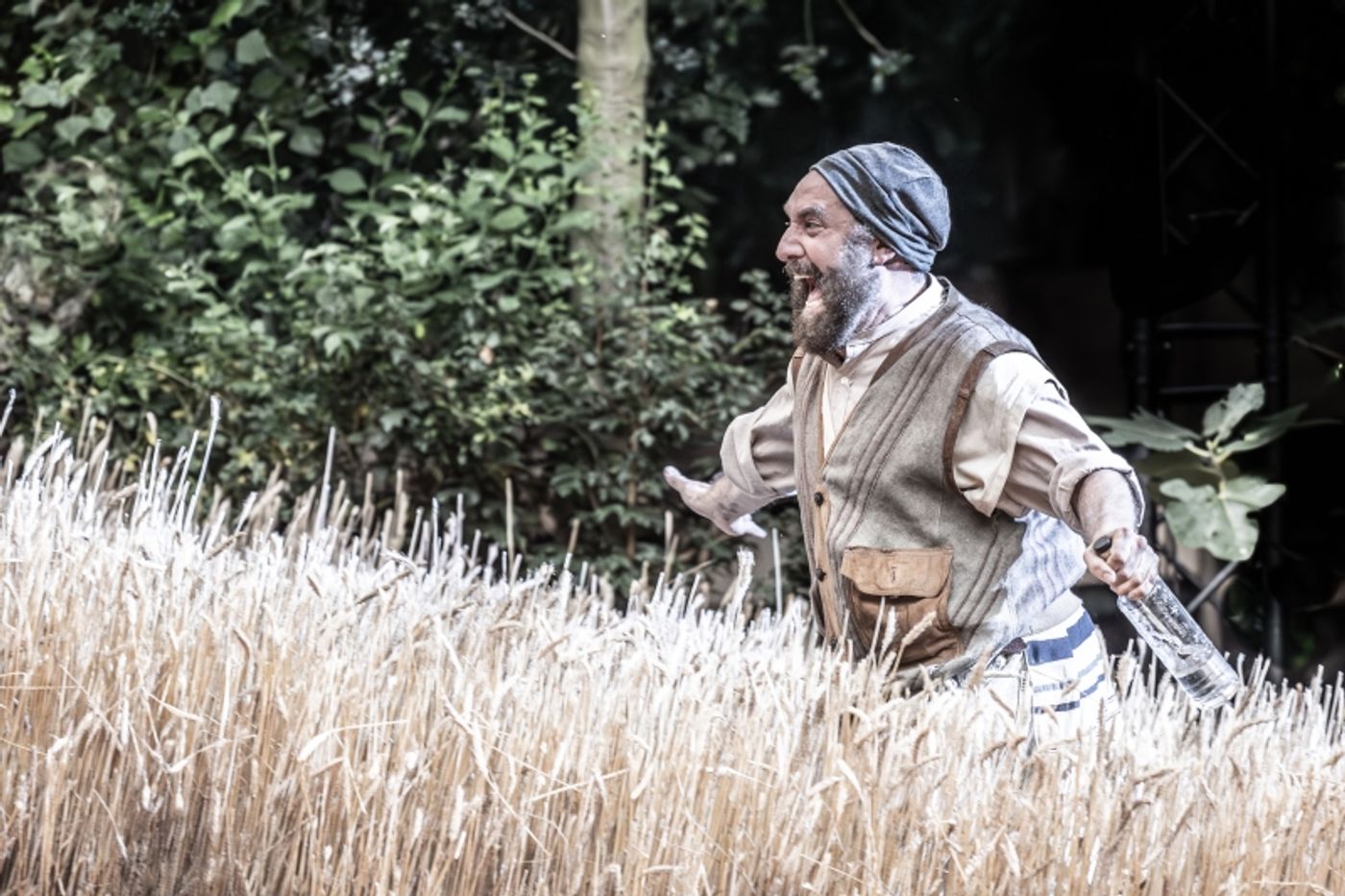
Their respective intended become increasingly more outraging to Tevye: the poor tailor Tzeitel loves suddenly is the least of his worries when Hodel decides to be with a revolutionary student and Chava marries outside of their religion. It all turns into too much for their father, who remains shackled by tradition and disowns the youngest of the three. In a beautiful turn, she and her clarinet replace the Fiddler. Fein leaves the image be, refusing to explain Tevye’s guilt.
Direction and design work as one in this picturesque setting. The earthy tones of Scutt’s vision sit in communion with the surrounding trees while Malone seems to have supernatural powers as she controls the sunset and programs it to happen right when the ensemble sing the eerie wedding song, “Sunrise, Sunset”. Candlesticks illuminate dark ceremonial clothes while the sun dies at the back. It’s exceptionally atmospheric timing, very affecting theatre magic. Silly disputes and petty bickering are set aside, Tzeitel and Motel (Dan Wolff) marry and the celebrations afterward become pure choreography by Julia Cheng.
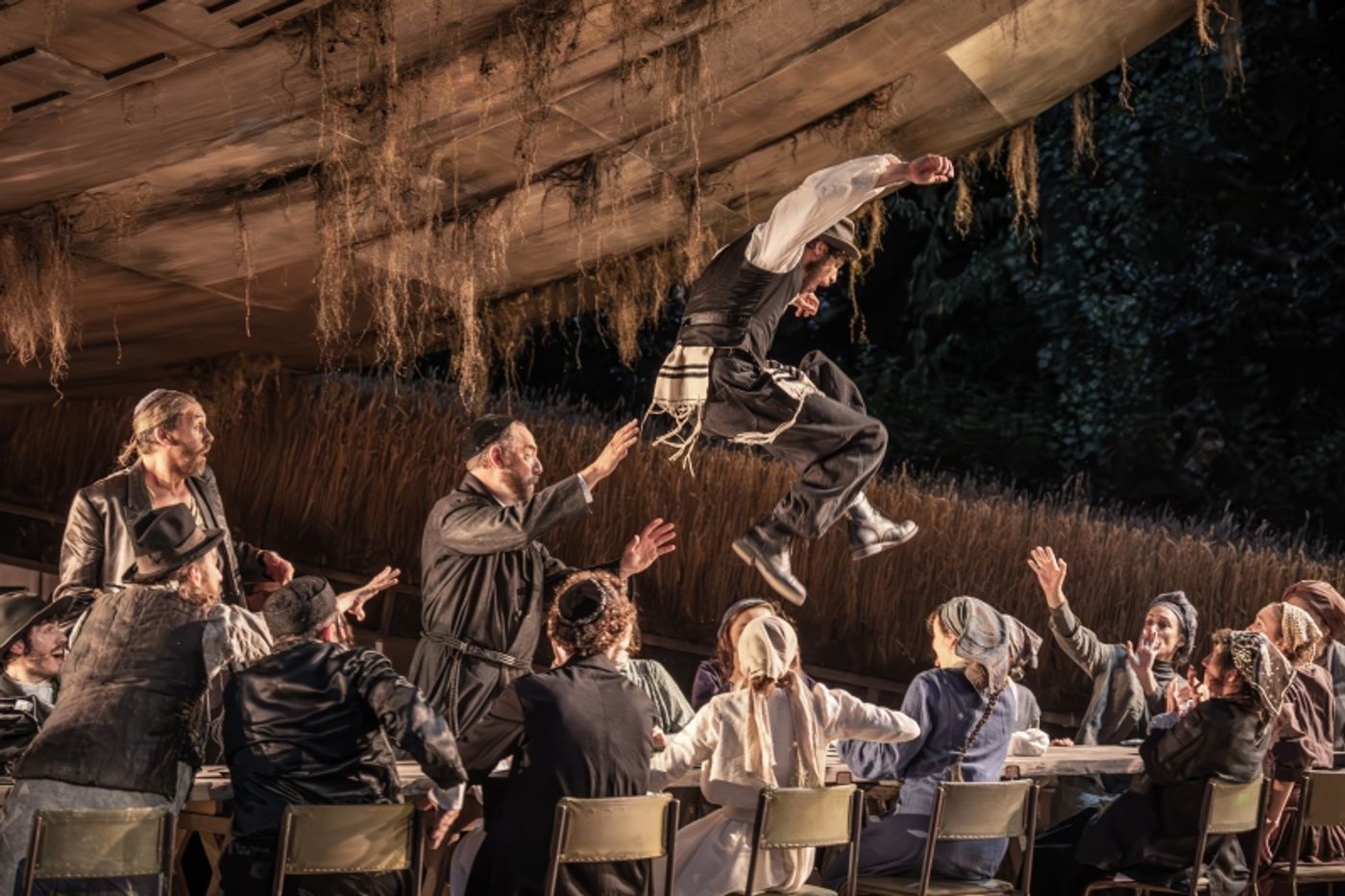
As night falls, their party is crashed by a pogrom. We witness harrowing moments as the Russian authorities beat them and set fire to their belongings. It’s difficult not to draw a parallel between this fiction and what’s happening in Gaza, or Ukraine, or even closer to home in England. The second act is permeated by darkness in the plot and in the starless skies above. The company maintain an interesting middle ground between the lightheartedness of Tevye’s nature and the serious sobriety of the material.
The subtle, fine humour given by the generational differences of the first part is replaced by the looming danger of the persecutions in the second. The insulation of their community doesn’t prevent them from seeing beyond the small world of Anatevka, ready to find a safer home. After fighting change, the characters take it in their stride, not without difficulty but with plenty of resilience. The vibrant leitmotifs in both the melody and lyrics linger, foreseeing a terrible homesickness.
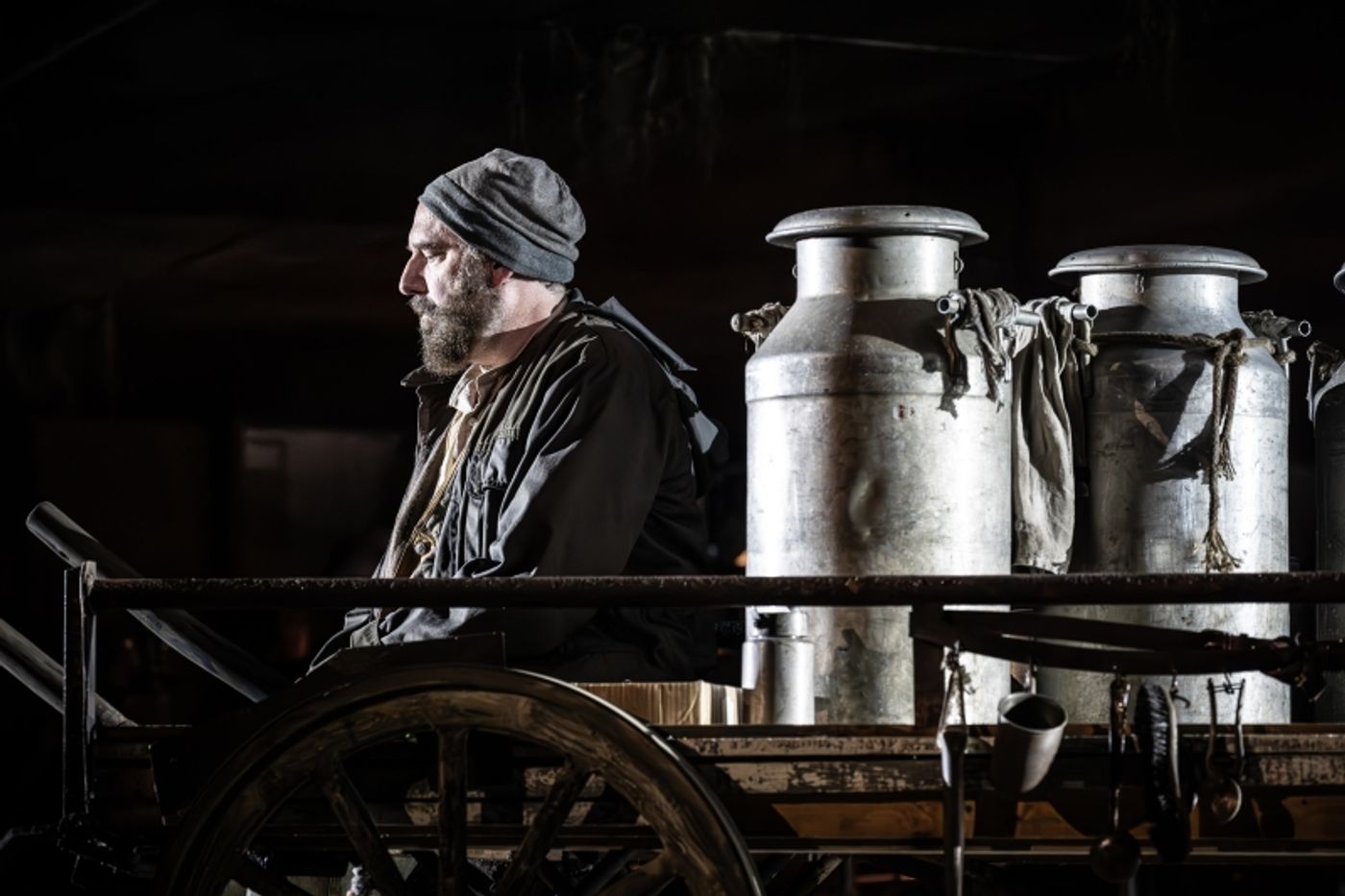
The production embraces Jewish representation and celebrates their religious rituals with refreshing openness. From Tevye’s personal relationship with God to the customs of his culture, there’s pride in Fein’s take. He imbues it with tradition, lifting the narrative to a universal story of love and sacrifice; the outdated strands of ideas end up cementing an emotive snapshot of a past that’s ruthlessly and constantly repeating somewhere. Charming, heart-rending, and utterly gorgeous, this is the revival of Fiddler.
Fiddler on the Roof runs at Regent's Park Open Air Theatre until 21 September.
Photo credit: Marc Brenner
Reader Reviews
Powered by
|
Videos

